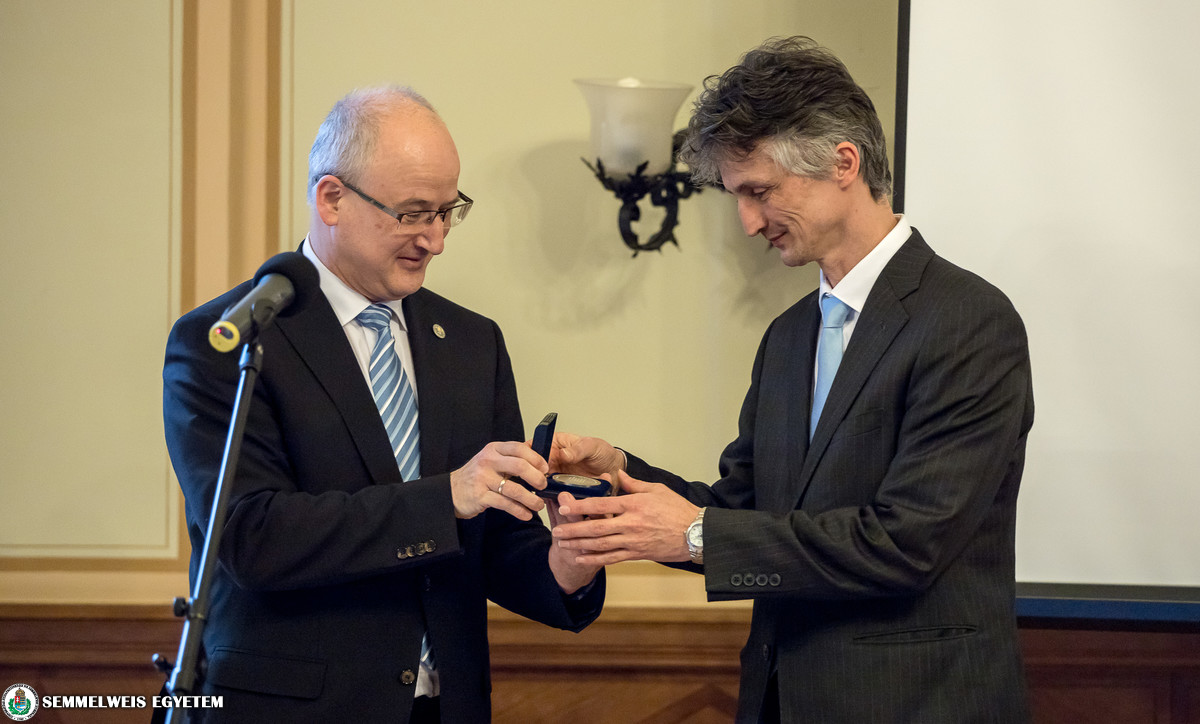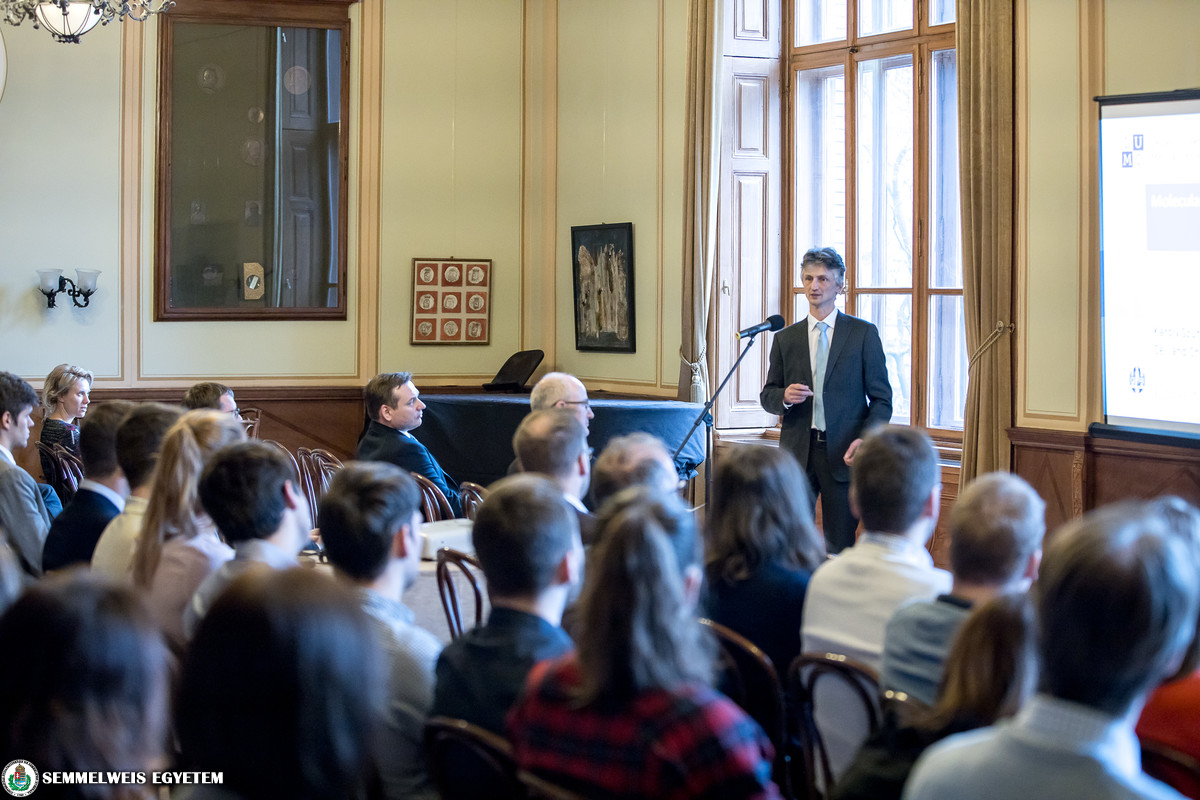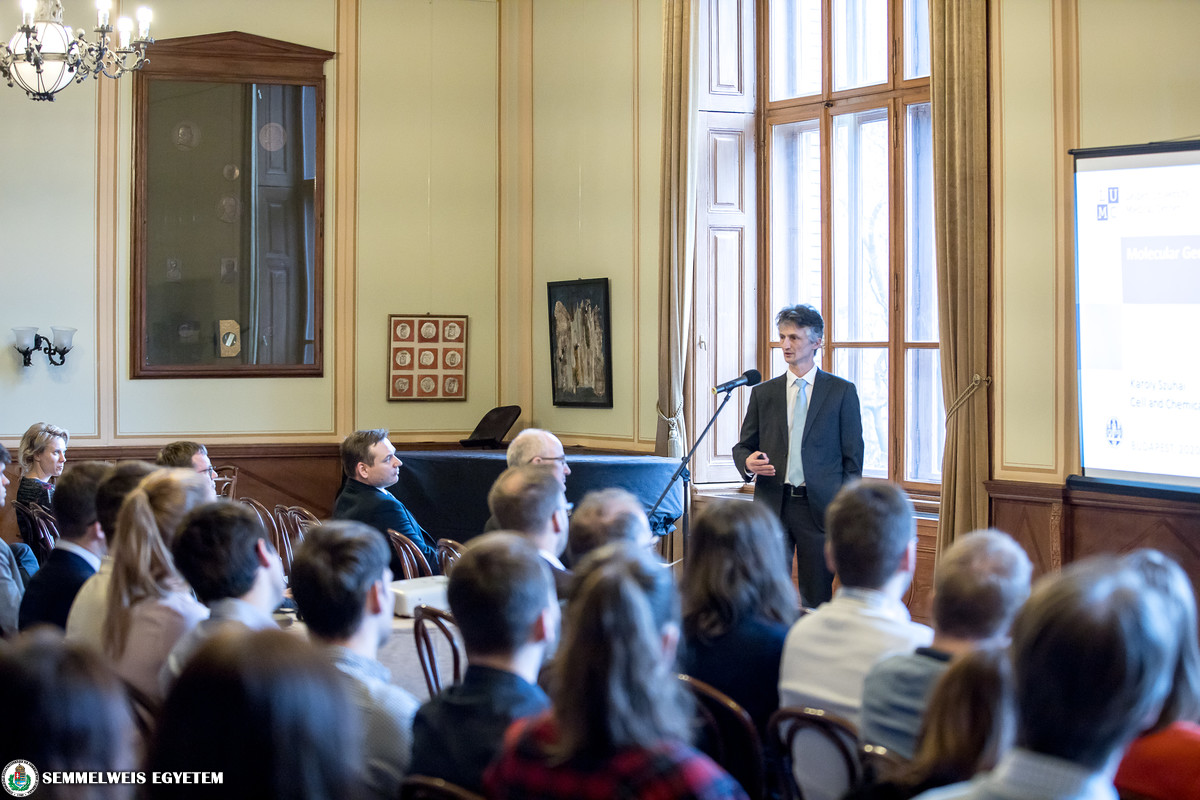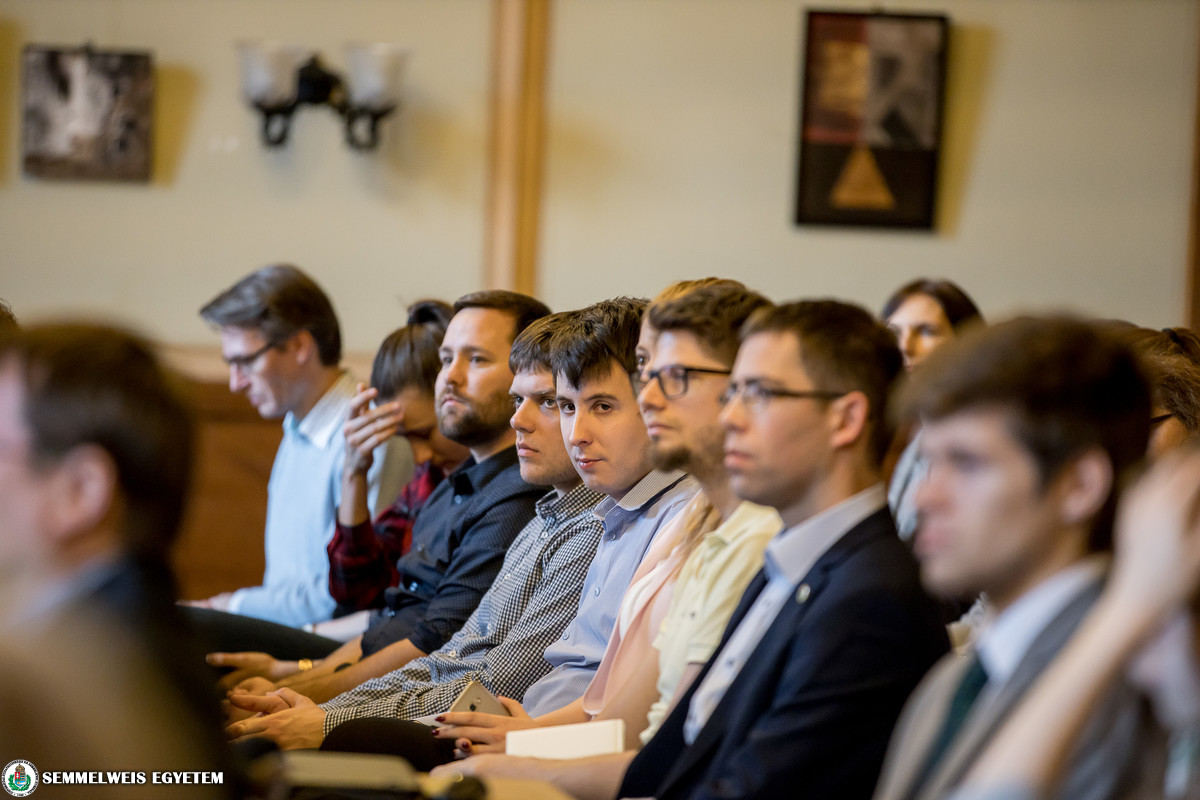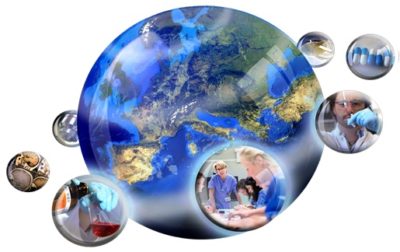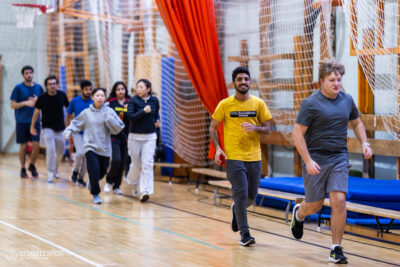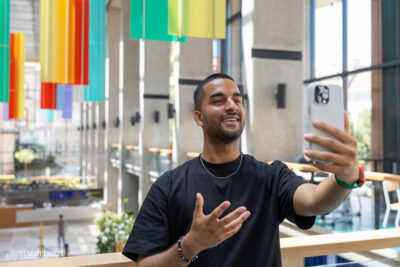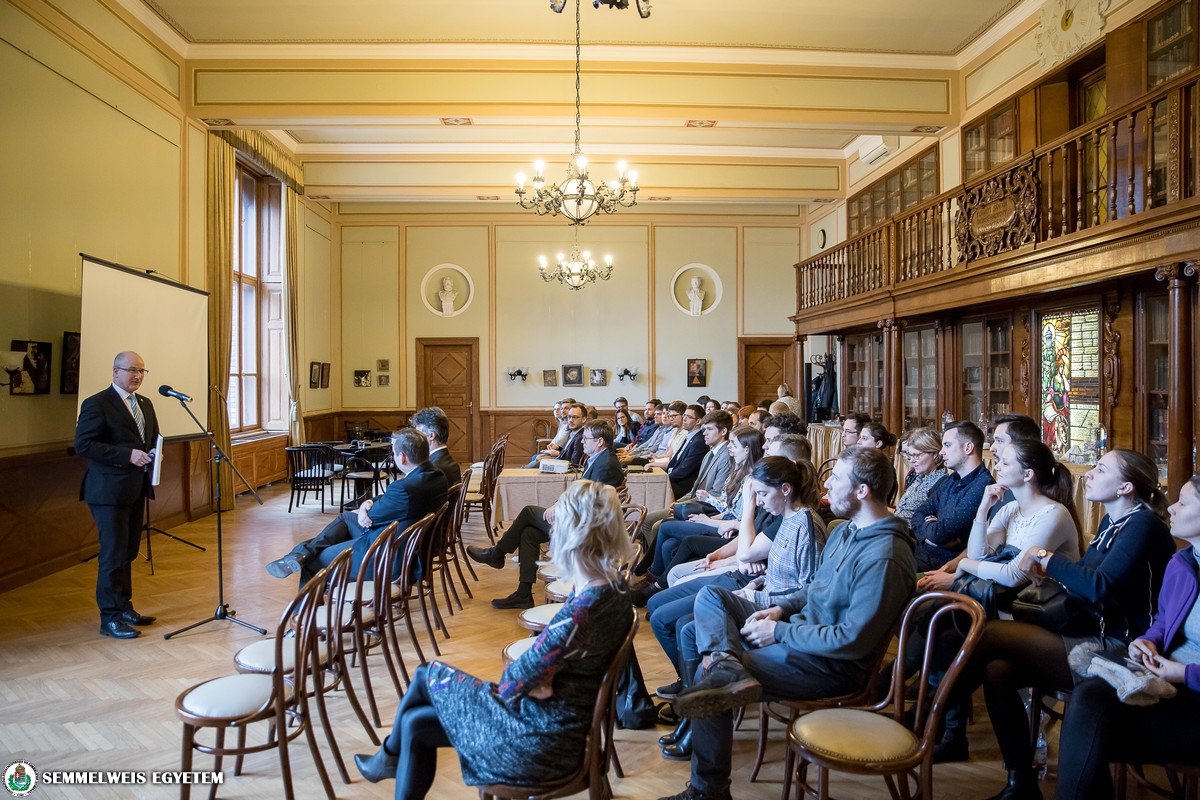 The event was opened by Dr. Miklós Kellermayer, dean of the Faculty of Medicine. He provided an overview of Eurolife, which is a network of nine prestigious academic institutions in life sciences that was established in 1999 and which Semmelweis University joined in 2017. Eurolife promotes and facilitates collaborative research, joint postgraduate training and education, the exchange of researchers and students and the building of joint research projects. He added that it is especially important for Semmelweis University to belong to a community of elite European universities, where it has become a constructive member. He emphasized the significance of the programs available to young student offered by the network and urged everyone to take advantage of these opportunities.
The event was opened by Dr. Miklós Kellermayer, dean of the Faculty of Medicine. He provided an overview of Eurolife, which is a network of nine prestigious academic institutions in life sciences that was established in 1999 and which Semmelweis University joined in 2017. Eurolife promotes and facilitates collaborative research, joint postgraduate training and education, the exchange of researchers and students and the building of joint research projects. He added that it is especially important for Semmelweis University to belong to a community of elite European universities, where it has become a constructive member. He emphasized the significance of the programs available to young student offered by the network and urged everyone to take advantage of these opportunities.
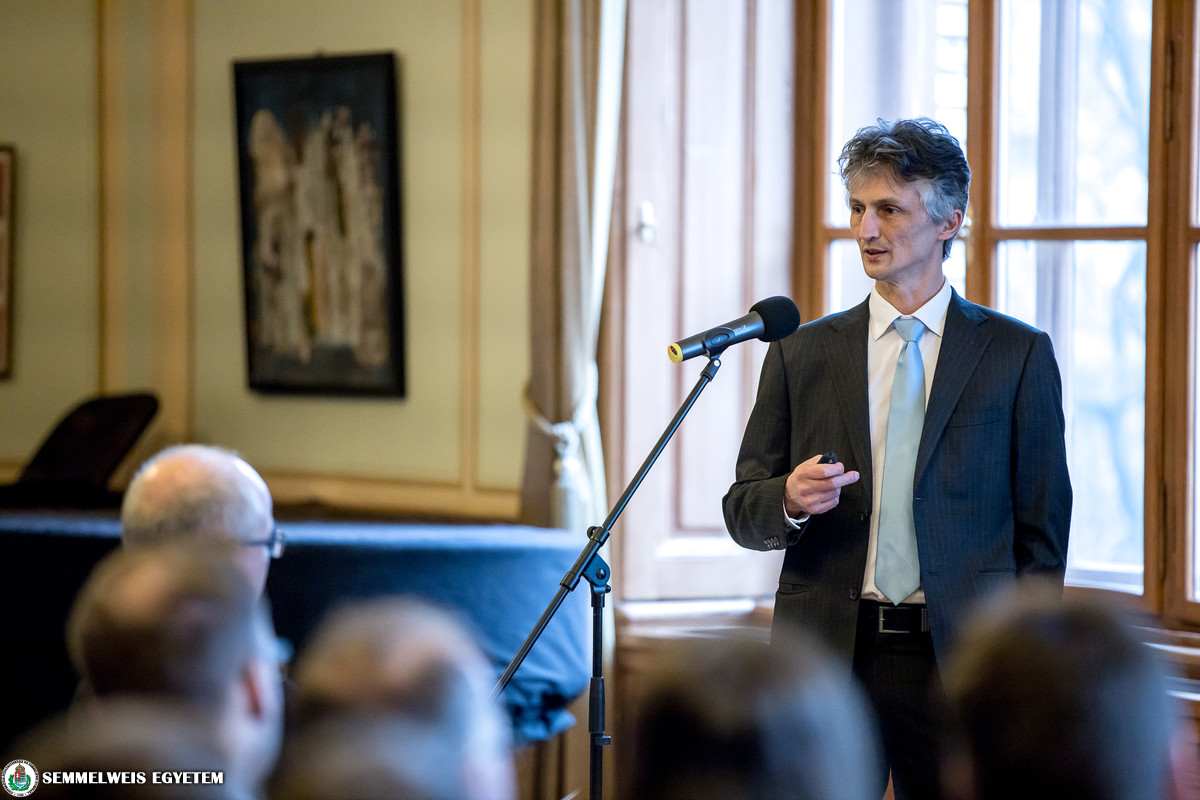 In honor of his distinguished lecture, dean Kellermayer presented the Eurolife medal to Dr. Szuhai, a professor at the University of Leiden, who held his presentation for university students in the Semmelweis Salon as part of the Eurolife Distinguished Lecture Series (EDLS). In his lecture, the professor, who is head of research group at the Leiden University Medical Center’s Department of Cell and Chemical Biology, provided an overview of the developments of the past two decades in the molecular technology used in cancer research. He noted that cancer is a genetic disease that develops because certain defects occur in genes, and in order to examine these in a large enough resolution we need to develop various research and diagnostic equipment. The professor has spent the past 20 years at Leiden developing and applying these methods, and in his lecture he presented their progression, from the simplest techniques to the latest procedures.
In honor of his distinguished lecture, dean Kellermayer presented the Eurolife medal to Dr. Szuhai, a professor at the University of Leiden, who held his presentation for university students in the Semmelweis Salon as part of the Eurolife Distinguished Lecture Series (EDLS). In his lecture, the professor, who is head of research group at the Leiden University Medical Center’s Department of Cell and Chemical Biology, provided an overview of the developments of the past two decades in the molecular technology used in cancer research. He noted that cancer is a genetic disease that develops because certain defects occur in genes, and in order to examine these in a large enough resolution we need to develop various research and diagnostic equipment. The professor has spent the past 20 years at Leiden developing and applying these methods, and in his lecture he presented their progression, from the simplest techniques to the latest procedures.
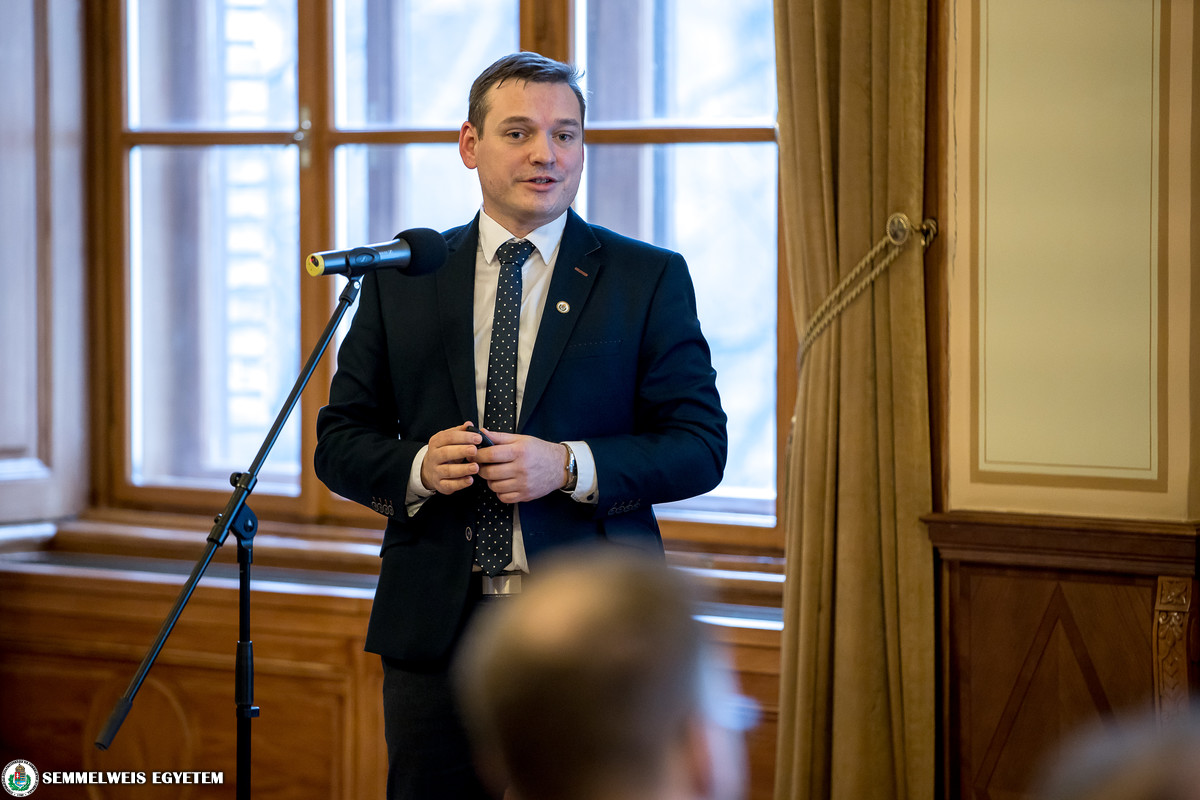 Dr. Csaba Bödör, a senior research fellow at the 1st Department of Pathology and Experimental Cancer Research, and member of Eurolife’s Education Alliance, presented the opportunities offered by the group’s mobility program, which basically has three forms. Eurolife organizes Summer and Winter Schools that offer 4-5 days of training based on an announced topic, which so far have included cancer research, neurobiology and immunology. Another opportunity is a short-term research mobility program where students can apply to visit partner institutions for a minimum of two weeks. The goal is building contacts and seeking joint research opportunities – one researcher from Semmelweis University took part in this program in 2017, and two have won funding for 2020. The third mobility opportunity is a 3-6-month scholarship for young researchers at partner institutions.
Dr. Csaba Bödör, a senior research fellow at the 1st Department of Pathology and Experimental Cancer Research, and member of Eurolife’s Education Alliance, presented the opportunities offered by the group’s mobility program, which basically has three forms. Eurolife organizes Summer and Winter Schools that offer 4-5 days of training based on an announced topic, which so far have included cancer research, neurobiology and immunology. Another opportunity is a short-term research mobility program where students can apply to visit partner institutions for a minimum of two weeks. The goal is building contacts and seeking joint research opportunities – one researcher from Semmelweis University took part in this program in 2017, and two have won funding for 2020. The third mobility opportunity is a 3-6-month scholarship for young researchers at partner institutions.
Dr. Richárd Kiss, a PhD student at the 1st Department of Pathology and Experimental Cancer Research, talked to the audience about his experiences at the 2018 Summer School in Leiden. The topic of the school was the application of molecular genetics methods in cancer, and he applied because his PhD dissertation was in the same topic. He said that various areas in the topic were covered during the five-day program, from basic research methods to translational research and industry application.
Psychiatrist Dr. Kinga Farkas will be visiting Leiden soon for a six-month exchange program for young researchers, where she will be researching the use of imaging in psychiatry and neurosciences. In her talk, she summarized her career and fields of interest so far, which led her to applying for the program. Following completion of her studies in medicine and psychiatry she also completed a master’s in computer and cognitive neurosciences. Her aim was to connect these two areas, and the Leiden scholarship provided the perfect opportunity for this, as she will be able to work with international partners in the area of neuroimaging.
More information on the opportunities provided by the Eurolife network is available on its website.
Tamás Deme, Eszter Keresztes
Translation: Tamás Deme
Photo: Attila Kovács – Semmelweis University

